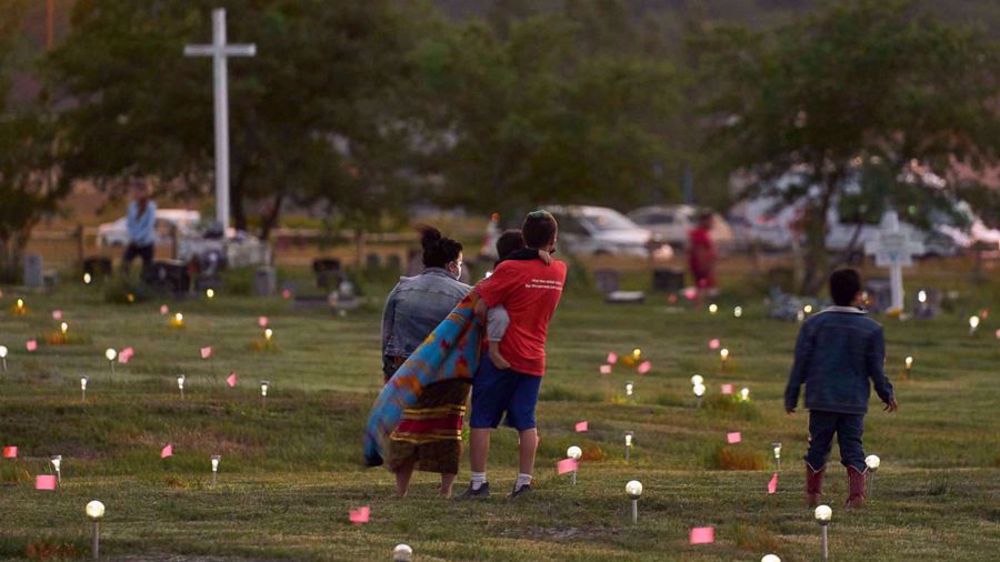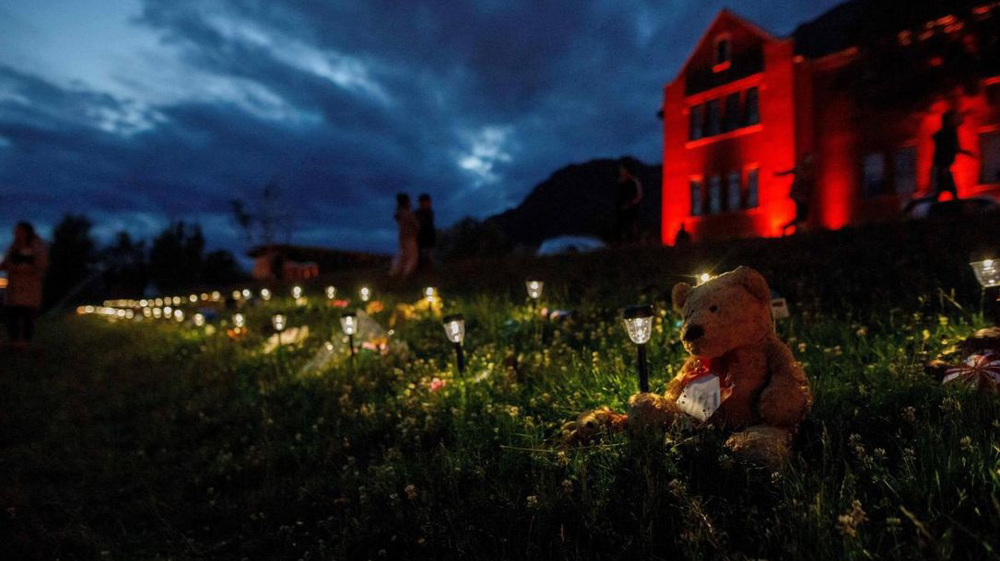
Speaking with Press TV’s Max Civili, Mitch Case said the reality is that Canada still hasn’t coped with its legacy as a colonial entity.
“Those schools – they were sort of the frontlines or the shock troops of colonialism,” Case said.
According to reports, over 150,000 Indian, Métis, and Inuit children were forced to attend 139 residential schools across Canada from the late 1800s to the 1990s, spending months or years isolated from their families.
The program aimed to isolate the indigenous children from the influence of their homes and culture and assimilate them into Canadian society by Christianizing them. But many of them were subjected to abuse, rape, and malnutrition.
The abuse scandal broke out again in May 2021 after an indigenous community unmarked a mass grave containing the remains of 215 children at the Kamloops Indian Residential School in British Columbia. The new discovery reopened old wounds and brought new demands for accountability. Hundreds more unmarked burial sites have been found since.
Case explained that the schools were used to “separate indigenous people from our lands and territories and separate the children from their families so that we forever break that connection to the land.”
“What we need is we need Canadians, not indigenous peoples but Canadians, to hold their churches and their governments accountable,” he said.
He also criticized the Pope’s continued silence on the issue, adding that by not saying sorry and by not saying anything at all, one is actually saying something.
Representatives of Canada’s three major groups of indigenous peoples – First Nations, Inuit, and Métis – have held meetings with Pope Francis at the Vatican in recent days to call for an apology from the Catholic Church over its role in the abuse.
During a Monday meeting, a number of the survivors of the schools called on the Pope to provide them with unlimited access to Church records on the schools.
“It was a very comfortable meeting,” Cassidy Caron, President of the Métis National Council, told reporters afterwards, adding that the Pope listened attentively to three elderly survivors who told their tragic stories at the residential schools.
“He repeated ‘truth, justice, and healing’ and I take that as a personal commitment so he has personally committed to those three actions,” Caron said, adding, “I felt some sorrow in his reactions ... We shared a lot with him.”



No comments:
Post a Comment